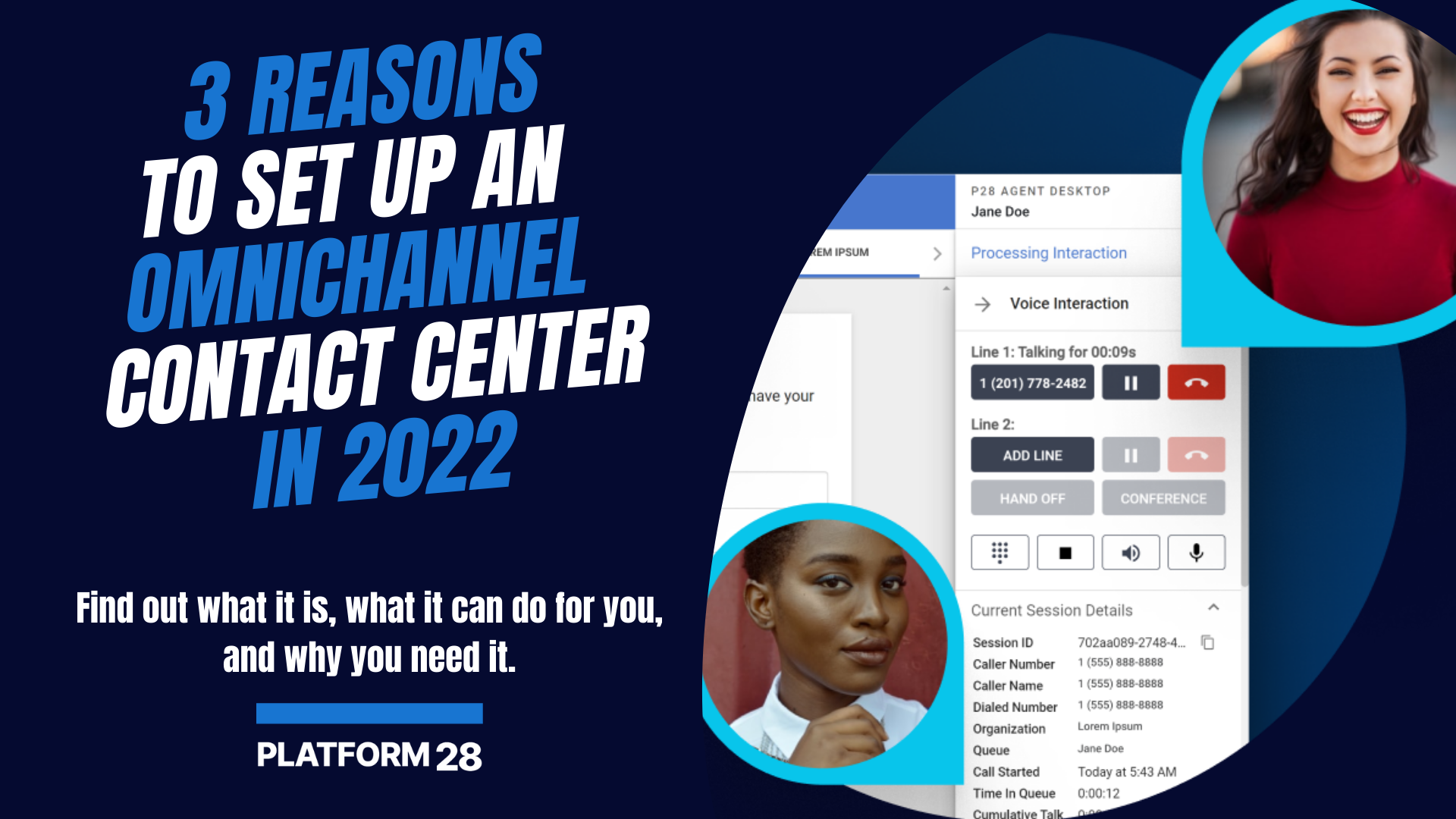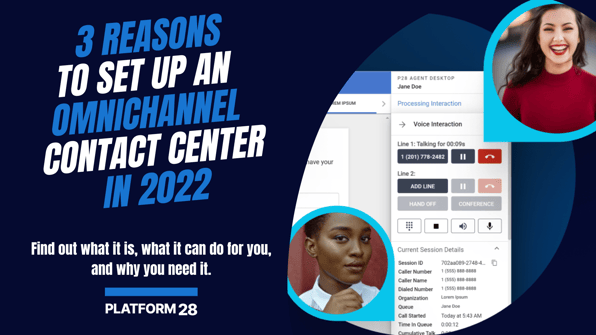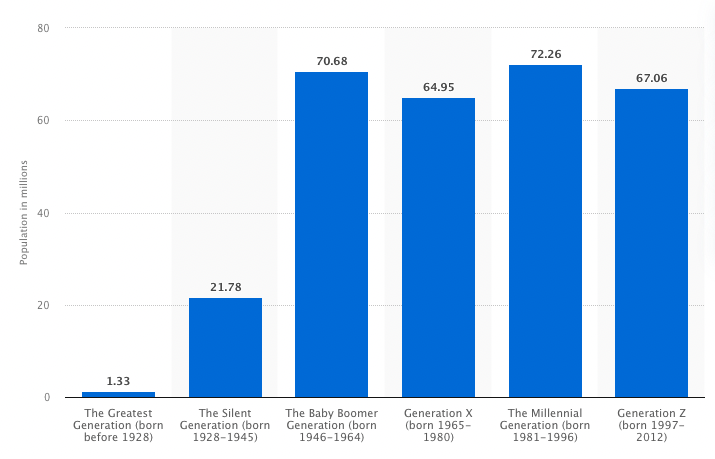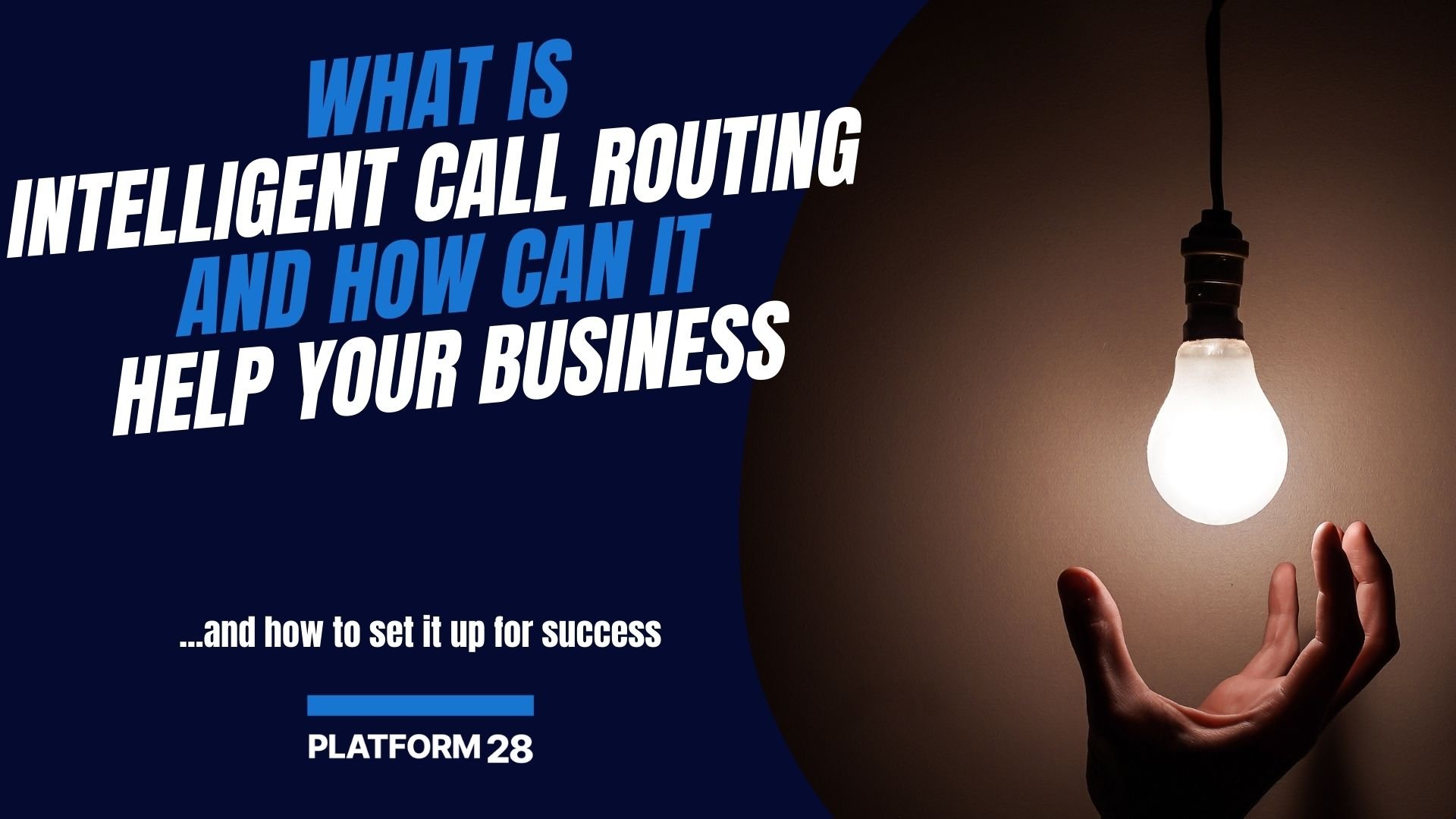3 Reasons to Set Up an Omnichannel Contact Center in 2022
3 Reasons to Set Up an Omnichannel Contact Center in 2022
The number-one factor for business success is product quality, right?
Wrong.
Here’s a sobering statistic: For a whopping eight out of ten customers, the experience a company delivers is as important as its products or services.
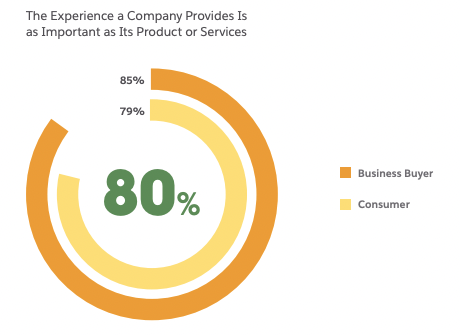 Courtesy of Salesforce
Courtesy of Salesforce
Smooth communication is essential for an exceptional customer experience — 75% of consumers expect consistent interactions across channels.
Yet, 65% are routinely asked to explain the same things to different customer service reps, and over half feel that departments don’t share information internally.
That’s the bad news.
The good news is that you can easily sync customer communications by setting up an omnichannel contact center.
As a bonus, you also get to ramp up employee productivity and boost customer satisfaction and retention rates.
What Is an Omnichannel Contact Center?
Omnichannel centers enable customers to contact organizations through multiple communication channels, including:
- Phone
- Webchat
- Video calls
- Text messaging
- Social media
- Mobile apps
Depending on the complexity of the inquiry, customers may speak to a bot, a live agent, or use self-service options like FAQs or knowledge vaults. In either case, the system allows both customers and agents to seamlessly move back and forth across touchpoints.
Interactions that start via email can continue on live chat or over a phone call, picking up where they left off. All channels are synced and updated simultaneously, enabling agents to view the full customer interaction history and account information.
For example, chatbots are very effective at handling quick and simple questions. However, when a bot hits the limits of its knowledge, it usually redirects the customer to a live agent. Omnichannel solutions not only reroute the customer automatically but also give the agent instant access to all previous interactions and account information.
Omnichannel vs. Multichannel Contact Centers
Similar to an omnichannel solution, a multichannel contact center has several channels for customer engagement. However, the difference is that these channels are not integrated.
Customer service agents are typically assigned one channel, such as phone calls or social media messaging, and can’t access the full history of customer interactions across touchpoints. The channels may even run on different systems.
As a result, communication methods remain siloed and work in parallel rather than together.
Top 3 Benefits of Omnichannel Contact Centers
Here are three reasons why you should seriously consider switching to an omnichannel contact center:
1. Higher Customer Satisfaction Levels
In 2020, tech-savvy Millennials surpassed Baby Boomers as the biggest population group in the U.S. (with Gen Z on their heels).
Courtesy of Statista
This has already caused a major shift in customer preferences. While the average consumer used just two touchpoints per purchase back in 2010, they now use six — and expect a consistent experience across channels.
This is where omnichannel software comes in. It lets customers use their preferred method of communication and get the cohesive, multichannel, and personalized experiences they want.
2. Increased Agent Productivity
By allowing customers to switch between touchpoints without affecting agent performance, omnichannel contact centers shorten support times and increase first contact resolution rates. Customers don’t have to repeat themselves or wait a long time to speak with the right agent on the right channel. This boosts agent productivity and, by extension, your customer retention rate.
3. Better Analytics to Enable Long-Term Growth
An often-overlooked benefit of omnichannel technology is that all customer data is stored in one place, gets updated in real-time, and can be accessed on-demand. This empowers you to trace each account from A to Z, creating a detailed customer journey map of all interactions with your organization.
By stepping into your customers’ shoes, you can better meet their expectations and track changing consumer preferences. For instance, as technologies evolve, some channels may become obsolete and can be removed from the mix, saving time and resources and boosting efficiency.
What to Look for in Omnichannel Contact Center Software
With so many contact center solutions out there, it can be hard to know which one best fits your needs. Here are some must-have features to look for when comparing different products:
- Artificial intelligence (AI): In its 2019–20 Intelligent Customer Engagement research study, consultancy firm Nemertes found that organizations using omnichannel with AI saw a 104% improvement in customer ratings.
- Intelligent routing: Intelligent routing technology automatically sorts and directs customer inquiries to the most appropriate agent, resource, automation, or self-service tool. This saves time and shortens resolution times.
- APIs and pre-built integrations: To create a true omnichannel experience, you need to integrate all communication channels as soon as they are launched. APIs and pre-built integrations get different applications to “talk” to each other, fit into your existing ecosystem, and work seamlessly as one integrated platform with a unified interface.
Ready to Build Your Own Omnichannel Contact Center?
Getting started is easy.
Simply click here to book a free, no-strings-attached demo and see our omnichannel contact center platform in action.







